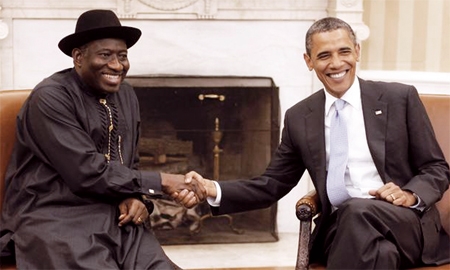Buoyed by a determination to become one of the top 20 economies in the world by 2020, Nigeria is in the throes of a massive transformation, as it aims to diversify its petroleum-based economy and make tangible changes to its business environment.
During his inauguration address as President of the Federal Republic of Nigeria and Commander-in-Chief of the Nigerian Armed Forces on May 29, 2011, Dr. Goodluck Jonathan announced: “We must form technical and financial partnerships with global businesses and organizations. We live in an age where no country can survive on its own […] Returns on investment in Nigeria remain among the highest in the world. We will continue to welcome sustainable investment in our economy [and] push programs and policies that will benefit both local and foreign businesses.”
According to the Nigerian Investment Promotion Commission (NIPC), Nigeria’s economy is “too large to ignore.” Opportunities for investors abound, from agriculture, transport and power generation to finance, manufacturing and tourism, with the nation’s non-oil sector now expanding at a greater rate than its dominant petroleum industry.
Terence McCulley, the U.S. Ambassador to Nigeria says, “Foreign investors should see Nigeria as a place with a lot of opportunity.”
“There is more to Nigeria than oil. We have cocoa and palm oil, for example, and arable land,” says Prof.
Adebowale Adefuye, Nigeria’s Ambassador to the U.S. “We will fulfill our potential by removing the impediments to our economy.”
Increasing transparency and stamping out corruption are just two of the current Administration’s targets. “We have compelled the government to create a committee so that when an investor has a problem he can complain, and within a week there will be a response,” says Mustafa Bello, CEO of the NIPC.
A major development in fighting corruption has been the creation of the
Bureau of Public Procurement (
BPP), whose key task is to ensure that bribery becomes a thing of the past. “It is important people know that if they are competitive in terms of quality and cost, they have a chance of getting the job without having to bribe anyone or know anyone,” says
Emeka Ezeh, Director General of the BPP. “Many reforms are taking place. People need to visit Nigeria to see the progress that has been made in building institutions that will instill confidence in them.”
He adds: “I aim to develop procurement here to the extent where a procurement officer will look a minister in the eye, and tell him that he cannot do what the minister is asking as it is against the law.”

0 COMMENTS